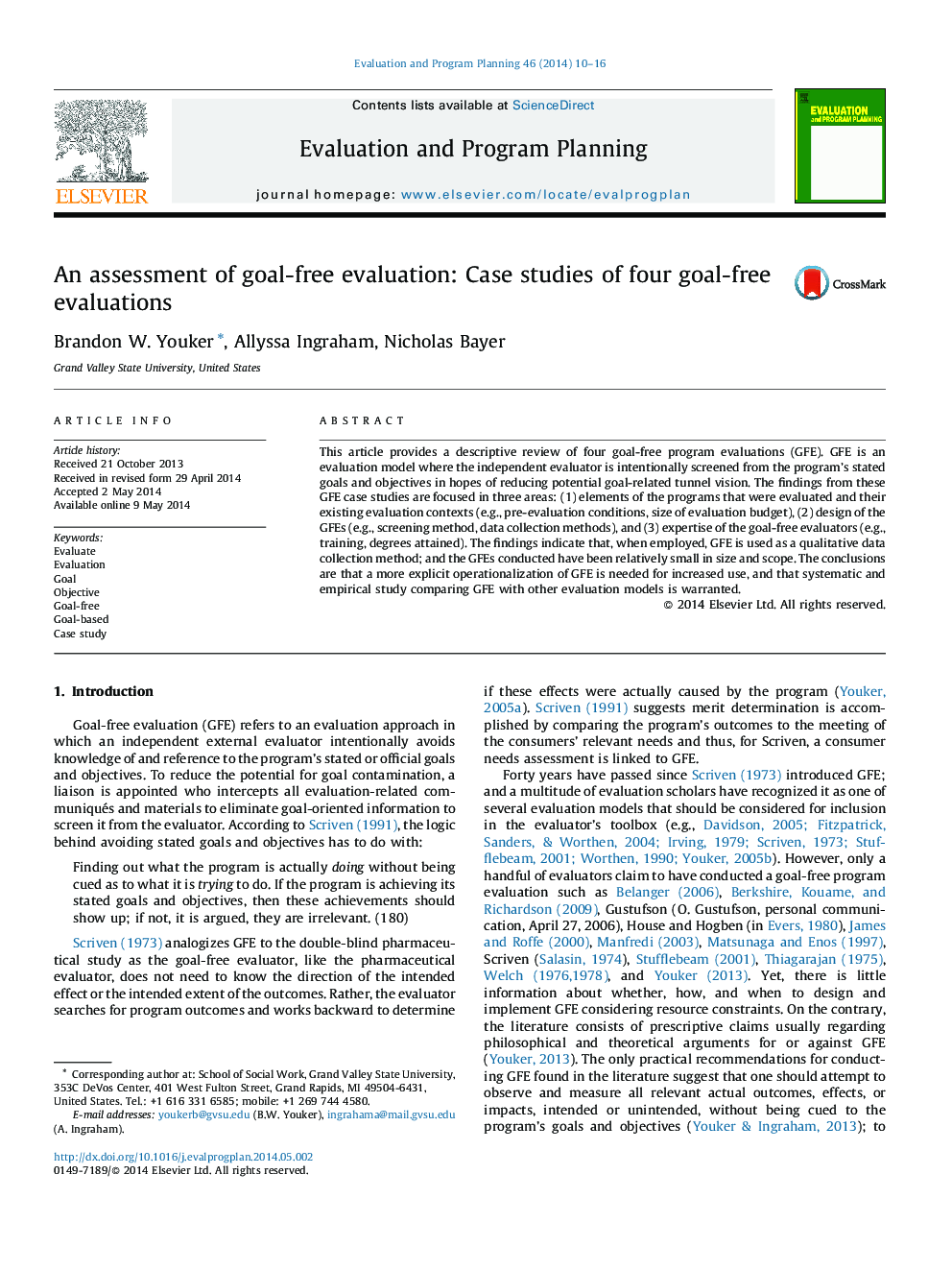| Article ID | Journal | Published Year | Pages | File Type |
|---|---|---|---|---|
| 321328 | Evaluation and Program Planning | 2014 | 7 Pages |
•We detail a descriptive review of four goal-free evaluations (GFE).•The goal-free evaluator avoids knowing program goals and objectives.•GFEs have been small and have used mostly qualitative methods.•GFE is often used as a supplement to goal-based evaluation.•Explicit methodology and further study is needed for increased use.
This article provides a descriptive review of four goal-free program evaluations (GFE). GFE is an evaluation model where the independent evaluator is intentionally screened from the program's stated goals and objectives in hopes of reducing potential goal-related tunnel vision. The findings from these GFE case studies are focused in three areas: (1) elements of the programs that were evaluated and their existing evaluation contexts (e.g., pre-evaluation conditions, size of evaluation budget), (2) design of the GFEs (e.g., screening method, data collection methods), and (3) expertise of the goal-free evaluators (e.g., training, degrees attained). The findings indicate that, when employed, GFE is used as a qualitative data collection method; and the GFEs conducted have been relatively small in size and scope. The conclusions are that a more explicit operationalization of GFE is needed for increased use, and that systematic and empirical study comparing GFE with other evaluation models is warranted.
